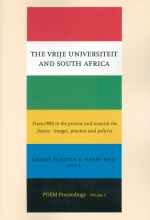The #GlobalPOV Project: “Are Slums The Global Urban Future?”
Welcome to the world-class city. It has towers, expressways, shopping malls, airports, private schools, and gated condominiums with golf courses, swimming pools and tennis courts. It has no slums, but the world-class city is built by slums — a paradox isn’t it? To see the city from the slum provides a different view, a view of the global urban future. Based on Prof. Ananya Roy’s popular Global Poverty class at the University of California, Berkeley, The #GlobalPOV Project video series combines critical social theory with improvised art and live-action sketch to explore issues of global poverty, development and foreign aid. The #GlobalPOV Project is a program of the Global Poverty and Practice (GPP) Minor. Based at the Blum Center for Developing Economies, University of California, Berkeley, the GPP Minor creates new ways of thinking about poverty, inequality and undertaking poverty action. Join the #GlobalPOV conversation on Twitter.
Website: http://blumcenter.berkeley.edu/globalpov
Richard Palmer- Part 1: An Innovative Approach To Sanitation In Cape Town?
Future of Cape Town. July 12, 2013. The ‘poo wars’ are taking Cape Town by storm… again. They are politically charged, indelibly tied to Apartheid planning but ultimately about giving people (yes, people) the dignity to poo; safely, in private and without compromising the health of their community – something most people reading this blog take for granted.
On current evidence, it seems the truth of the matter is that providing basic sanitation services to South Africa’s poor seems too big a challenge for our major cities, regardless of who governs them (unpalatable as that might be to many DA supporters). In their defence though, delivering effective sanitation services to informal settlements is a tough ask, with few successful precedents globally.
This post is a response to a ‘conversation’ with WC premier, Helen Zille on Twitter (@helenzille) about the failure of The City of Cape Town to commit to a process of getting the problem solved. My biggest grievance is that the current approach has not even begun to test the possible innovative options and is desperately lacking in compassion – neglecting the dignity granted to all people by the bill of rights.
Informal settlements – slums – are a feature of nearly every emerging city. In many ways they provide an optimal, self-organising strategy for allowing people to escape rural poverty within whatever means they have and access the social and economic opportunities of cities. Slums are not, in and of themselves, a problem.
But they are devilishly difficult to service with municipal infrastructure – water, sanitation, waste collection and transport. They’re also a challenge for essential services like health, education and security. In essence this is because our traditional approach to delivering services is that infrastructure comes first and people come later. When dwellings come first, we don’t have good models for fitting infrastructure in afterwards.
Part One: http://futurecapetown.com/an-innovative-approach-to-sanitation-in-Cape-Town Part One
Part Two: http://futurecapetown.com/an-innovative-approach-to-sanitation-in-Cape-Town Part Two
POEM: The Vrije Universiteit And South Africa, From 1880 To The Present And Towards The Future: Images, Practice And Policies
 The Vrije Universiteit (Amsterdam) and South Africa share a long history together, dating back to as early as 1880. At times this history has been a turbulent one. The year 1994 marked the beginning of a new period in the relationship between the VU and South Africa. Currently, nearly all VU-faculties are actively cooperating with South African colleagues. But what type of academic knowledge and cooperation is the ‘new’ South Africa actually waiting for?
The Vrije Universiteit (Amsterdam) and South Africa share a long history together, dating back to as early as 1880. At times this history has been a turbulent one. The year 1994 marked the beginning of a new period in the relationship between the VU and South Africa. Currently, nearly all VU-faculties are actively cooperating with South African colleagues. But what type of academic knowledge and cooperation is the ‘new’ South Africa actually waiting for?
Gerrit Schutte, supported by the Faculty of Arts, together with Savusa (South Africa – Vrije Universiteit – Strategic Alliances) organised a mini-conference in October 2004 (called a Publication Oriented Expert Meeting or ‘POEM’ in Savusa jargon). The purpose of this POEM was to look at the future of the relationship between the VU and South Africa, and to investigate whether further continuation or even expansion of the relationship would be in the interest of both VU and South African academics.
SAVUSA POEM Proceedings, Volume 1 – Rozenberg Publishers, 2005
Now online:
Albert Grundlingh – Some Trends In South African Academic History: Changing Contexts And Challenges. (incl. the Introduction of the Proceedings by Harry Wels and Gerrit Schutte)
Tom Lodge – Political Studies In South Africa. A Personal Perspective.
Ena Jansen – A ‘new’ literature.
Flip Smit – ‘New’ Scientific Practice In South Africa With Special Reference To Land Reform.
Gerrit J. Schutte – The Vrije Universiteit and South Africa: 125 years of sentiments and good faith
Parul Agarwala – Is Upgrading Informal Housing A Step In The Right Direction?
 Worldbank.org. July 9, 2013. Submitted by Parul Agarwala, co-author Syed Usman Javaid
Worldbank.org. July 9, 2013. Submitted by Parul Agarwala, co-author Syed Usman Javaid
Within the next 30 years, urban populations in developing countries will double and UN-Habitat estimates that around 3 billion people will need housing and basic infrastructure. Already, 70% of existing housing in developing countries is built informally without appropriate structural standards. Thus, the challenge lies in reconciling informal settlements with existing and future planned environments.
In light of these challenges, the South Asia urban team at the World Bank, as part of its urbanization webinar series, organized a discussion on “Upgrading Housing in Informal Settlements.” This webinar highlighted the challenges of upgrading housing in informal settlements, and shared lessons from around the globe where targeted policy interventions and grassroots movements have mobilized resources to create success stories. Guest speakers and experts around the world joined the discussion on informal settlements.
Read more: http://blogs.worldbank.org/upgrading-informal-housing-step-right-direction?
A Roof Overhead–Building A Secure Future For Africa
modernghana.com. July 10, 2013. Innovation and collaboration are needed to provide more, cheap, sustainable housing and stop the crippling backlog in Africa from getting worse
Runaway housing prices and unsophisticated mortgage systems are hampering efforts across Africa to house its people: a situation that experts say is preventing many countries from reaping the social and economic benefits that housing security provides. Going beyond a roof overhead, housing creates employment during the development phases, and improves quality of life, social standing, health, financial position, security, social cohesion and access to education.
The ABSA housing index, shows that in South Africa the average price of small houses have risen from R660 953 in the first quarter of 2011 to R777 343 in the fourth quarter of 2012. In the affordable segment, the price rose from R292 790 in 2009 to R345 388 in 2012. In both cases, there has been a 17% increase. In Kenya, prices increased by roughly 76% between 2008 and 2012.
Read more: http://www.modernghana.com/roof-overheadbuilding-a-secure-future
Habitat – Slums In The Sky
 Habitat works to improve high-rise living conditions in Europe and Central Asia to improve high-rise living conditions in Europe and Central Asia.
Habitat works to improve high-rise living conditions in Europe and Central Asia to improve high-rise living conditions in Europe and Central Asia.
See more: http://www.habitat.org/slums_in_the_sky



